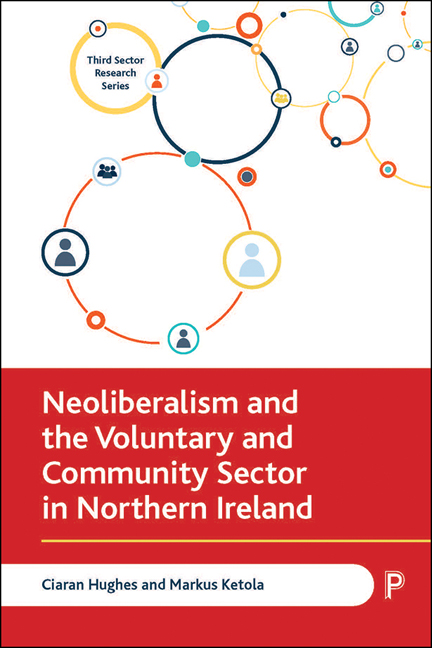Book contents
- Frontmatter
- Contents
- List of abbreviations
- Acknowledgements
- Series editor’s foreword
- one Introduction
- two Neoliberal enrolment? The ‘partnership turn’ in government rhetoric and policy
- three Getting connected: celebrating the value of connections and networks
- four Inside the networks: the rhetoric and the reality
- five Independence of voice, purpose and action
- six Conclusion
- Notes
- References
- Index
five - Independence of voice, purpose and action
Published online by Cambridge University Press: 30 April 2022
- Frontmatter
- Contents
- List of abbreviations
- Acknowledgements
- Series editor’s foreword
- one Introduction
- two Neoliberal enrolment? The ‘partnership turn’ in government rhetoric and policy
- three Getting connected: celebrating the value of connections and networks
- four Inside the networks: the rhetoric and the reality
- five Independence of voice, purpose and action
- six Conclusion
- Notes
- References
- Index
Summary
As noted in previous chapters, recent changes in the government–VCS relationship have ignited yet another round of debates about the sector's independence, its distinctiveness vis-à-vis other sectors, and its relationship with the state (Acheson, 2013; Panel on the Independence of the Voluntary Sector, 2014; Ketola and Hughes, 2016). Of course, defining both the independence and distinctiveness of the VCS is not an easy task (Macmillan, 2012) for it is a ‘loose and baggy monster’ (Kendall and Knapp, 1995; Alcock, 2010) made up of a myriad of organisational types and sizes. The VCS conducts its work in many policy fields, its organisations have a range of geographical remits and each organisation has a particular relationship with government and other funders. This means that experiences and understandings of independence are likely to be as varied as the sector is diverse. Despite the complexity of the issue, and with no agreed understanding of what is meant by independence, across the UK some sectoral actors recognised that there was a need to ‘start the debate somewhere’, and that mechanisms were needed for exploring the sector's relationship with government and threats to its independence.
These debates have covered, inter alia, issues around the ‘contract culture’, threats to the sector's purportedly distinctive culture and values, top-down bureaucracy, contract prescriptiveness, ‘mission drift’, state co-option, government–VCS consultation and lobbying, campaigning and ‘independence of voice’. In both the UK and internationally, this wide-ranging debate on the future of the sector was confronting how a shifting policy environment, and organisational responses to this new environment, had the potential to impact on the claimed ethos and nature of the sector. There have also been many debates and discussions on the different traditions of VCS action and the role of the sector in explicitly political activities, such as campaigning for improved and accountable universal public services and social protections (see NCIA, 2015). In many ways NI's VCS has been catching up to its counterparts in other regions in that it is facing similar issues in terms of its independence. However, as was suggested in the previous chapters, and as will become clearer in the following sections, for a long time the level of debate about the role and nature of the VCS, its independence, and the nature of its relationship with government, has lagged behind the debate being held elsewhere.
- Type
- Chapter
- Information
- Publisher: Bristol University PressPrint publication year: 2021



